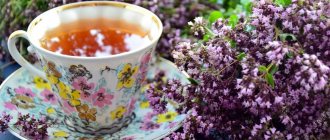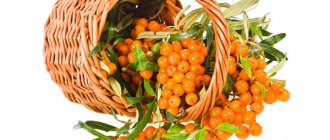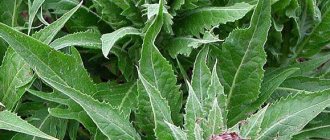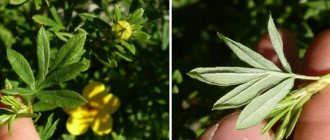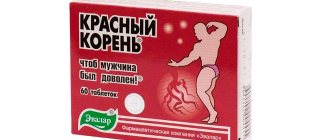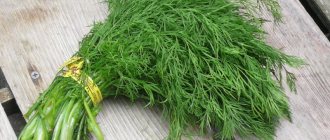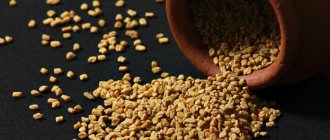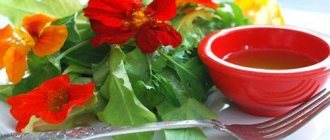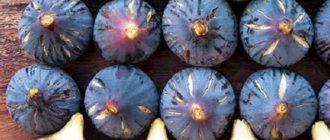Composition and benefits of fennel
This atypical plant has been used in cooking and medicine since ancient times.
It has a rich chemical composition:
- flavonoids;
- routine;
- flavones;
- antioxidants;
- quercetins.
Thanks to all these substances, the use of fennel can significantly reduce the risk of developing liver cancer. The plant contains a large amount of ascorbic acid (vitamin C), much more than in oranges and lemons.
Vitamin C contained in plants helps the immune system to withstand the onslaught of colds and helps remove released radicals from the body. The content of almost the entire vitamin B group in fennel has a beneficial effect on the stability and strengthening of neuropsychic health. The plant has a slight calming effect.
Natural natural “cleansers” tocopherols and retinol help cleanse the body of slagging and harmful decay products, which has a positive effect on the visual health of the skin and hair. When eaten, dietary fiber accelerates metabolism (metabolism) and removes cholesterol.
Essential oil extracts are widely used in medicine, perfumery and cosmetic compositions. Dietary and dietary fibers are responsible for removing harmful cholesterol from the blood, speed up food processing, stabilize blood pressure (blood pressure), and prevent heart muscle diseases.
All parts of the plant are suitable for consumption - greens, seeds and roots, both dry and fresh. The most common are vegetable and ordinary varieties.
Root
It wouldn't hurt for anyone to include fennel root in their daily diet. The root contains a whole mineral and vitamin complex.
| Vitamins | A, B (1,2,5,6,9), C, RR |
| Minerals | Zinc, selenium, manganese, copper, iron, phosphorus, sodium, magnesium, potassium, calcium |
| Energy value | 30 kcal/100 g |
| Composition (per 100 g): | fats-0.2 g |
| proteins - 1.24 g | |
| carbohydrates – 7.4 g | |
| H20 (water) – 90.3 g | |
| ash – 1 g | |
| fiber – 3 g |
Fennel has low calorie content and is suitable for people watching their diet. In addition to vitamins and minerals, the root contains essential oils, flavonoids and antioxidants.
The use of fennel rhizomes in food has a beneficial soothing, restorative and antimicrobial effect:
- normalizes hormonal levels - in case of disorders of the female sphere, pain during menstruation and irregular cycles, it smoothes out the unpleasant consequences of hormone fluctuations;
- helps with poor vision - regular use of the plant's roots helps restore vigilance, prevents the development of age-related changes in the eyes and decreased vision. Well relieves tired and irritated eyes syndrome;
- cleansing of toxins – speeds up metabolism and the removal of unhealthy decay products;
- treatment of acute respiratory viral infections and influenza - included in anti-cold preparations used to prevent and treat seasonal respiratory diseases;
- normalizes the functioning of the gastrointestinal tract - accelerating metabolism, facilitating the process of digestion and assimilation of food, relieving bloating, gas formation, pain and colic;
- prevention of cancer;
- slows down the aging process of the body;
- has a beneficial effect on heart health and vascular condition;
- helps overcome stress and depressive disorders;
- increases the body's natural defenses;
- helps increase iron in the blood
Leaves
The composition of fennel stems and leaves is identical to the rhizomes. When consumed fresh, a person will receive more natural antioxidants, tocopherols and flavonoids, which can neutralize harmful substances in the body and prevent the development of abnormal cancer cells. In fresh or dried form, fennel is added to food (salads, side dishes, soups).
This supplement not only diversifies the diet, but also:
- perfectly tones;
- stimulates and enhances sexual desire;
- promotes easy and comfortable digestion.
Both fresh and dried leaves can be used for bloating and flatulence.
Seeds
The seeds have particular benefits for treating digestive tract problems. They are brewed for babies for cramps and abdominal pain (infantile colic).
They are also useful for adults with:
- cardiovascular problems;
- cholesterol levels;
- gas accumulations;
- stomach pain;
- respiratory diseases, cough (as an expectorant).
Fennel seed helps in oral care. Many manufacturers include ground fennel seeds in dental rinses, powders and pastes. You can simply chew the seeds after a meal. This will freshen your breath and become a natural alternative to chewing gum.
Oil
Fennel, the medicinal properties and contraindications of which have been well studied by researchers, is also used in the form of oil. Fennel oil reveals itself beautifully in combination with other oils: rose, lavender, geranium.
It contains:
- anethole;
- fenchon;
- camphene;
- anisic acid and aldehyde;
- limonene.
The ether is non-toxic, but in large quantities it can irritate the mucous membranes and skin, have a narcotic effect on the body, and intoxicate. It can also provoke the development of allergies.
Not recommended for pregnant women and people suffering from epilepsy.
Fennel oil can have the following effects on the human body:
- increases appetite;
- stimulates lactation in women;
- helps with bad breath;
The healing properties of fennel help to cope with bad breath. Fennel is used to reduce alcohol odor - kills germs;
- relieves symptoms accompanying menopause (hot flashes, heavy bleeding, PMS);
- promotes liver cleansing and regeneration;
- is an antispasmodic (relieves pain);
- diuretic - copes with edema, kidney stones, indicated for kidney diseases;
- detoxification of the body in case of poisoning, vomiting;
- increases gastrointestinal secretion, stimulates motility;
- calms the nerves.
Fruit
The fennel fruit visually resembles a head of garlic and is an enlarged grain divided in two.
The fruits contain:
- essential oils (4-6%);
- oleic acid;
- petroselinic acid;
- antenol;
- proteins.
Has the following properties:
- Expectorant.
- Painkiller.
- Disinfectant.
Botanical description of the Fennel plant
There are several types of fennel, about ten, but two of them are very famous in the world: ordinary and vegetable (headed). This article describes exactly the common fennel. But head fennel, in principle, is no different from ordinary fennel, except that a head of cabbage is formed at the base of the aerial part. In this way it resembles kohlrabi cabbage. This species is also called Italian because of its homeland of origin, or vegetable, since it is used to a greater extent in cooking.
Common fennel (Foeniculum vulgare) is a member of the Apiaceae family. As already mentioned, in appearance, especially in the early stages of development, it is very similar to dill. For this reason, it has a number of popular names - medicinal dill , Voloshsky dill , pharmaceutical dill .
However, unlike dill, fennel has a slightly sweetish spicy taste, an aroma reminiscent of anise, and a more powerful bush, reaching a height of over 1 m. Multi-headed, fairly thick (1 cm in diameter) root, branching in the upper part.
Common fennel (Foeniculum vulgare).
The stem of the plant is thinly ribbed, straight, rounded, and branched. Compound pinnately dissected and ovate-triangular leaves with linear-filamentous or linear-silt-shaped lobes of the last order. Five-membered flowers are collected in double umbels with 3-20 rays, with a diameter of 3 to 15 cm. The fruits of fennel - the fruits of fennel - consist of two easily separated parts, have a greenish-brown color, and are about 8 mm long.
In the Caucasus and Crimea, fennel can often be found growing wild. In the wild, the plant prefers grassy places and often grows in ditches and near roads.
Contraindications for taking fennel
Since fennel contains biologically active natural substances, in some cases its consumption can be harmful:
- during the period of bearing a child;
- with hyperlactation;
- with convulsive syndrome (epilepsy);
- for gastrointestinal diseases accompanied by diarrhea;
- with excessive sensitivity to the plant and its components (due to the risk of developing allergies);
- for serious heart rhythm disturbances.
Description, biochemical composition
Due to their external similarity, many people often confuse fennel and dill. What is the difference between these related plants and is there any at all, since they are so similar to each other?
It is easy to distinguish fennel from dill simply by tasting both plants. The first has a delicate sweetish taste and a pronounced spicy aroma; for the second, bright flavor and aromatic “shades” are less characteristic (fennel and anise are much closer in this regard).
It is even more difficult to confuse vegetable fennel with dill, since its stems are not thin and erect, but very thick at the base and more similar in appearance to small heads of cabbage.
The biochemical composition of fennel includes:
- quercetin (bioflavonoid that supports the functioning of the immune and cardiovascular systems);
- anethole (a substance with anti-inflammatory and anti-cancer properties);
- calcium, potassium, magnesium, phosphorus, iron, manganese, zinc, copper;
- vitamins A, C, P, B1-B3, B6;
- succinic and malic acids.
The vegetable owes its benefits largely to the high content of essential oils, which give the plant not only medicinal properties, but also a recognizable spicy taste and aroma.
In what form do you take fennel?
You can take fennel in the following form:
- oil composition – included in massage products, enriched with care products (creams, gels, shampoos). For colds, they are used in aroma lamps. Suitable for oral administration – for problems with the digestive tract;
- decoction - a tablespoon of fennel seeds (or crushed other parts of the plant) is poured with 200-250 ml of water and allowed to brew for an hour. Suitable for gargling and oral administration for flatulence and urolithiasis;
- healing tea - prepared almost similarly to fennel decoction, but infused less. Used to prevent acute respiratory viral infections, strengthen the body's immune forces, and increase lactation;
- infusion - crushed fennel raw materials are infused in an alcohol-containing base (white wine, vodka, alcohol) for a month. For medicinal purposes, use 2-3 tbsp. spoons per day;
- whole plant for culinary processing - you can take any part of the plant (root, seeds, fruits, stem) to add to salads, soups, side dishes. In some countries, the plant is stewed, boiled and pickled.
Application in official medicine
Official medicine often uses products that include fennel. This includes tinctures and medicinal teas, which have proven themselves to be good in the following cases:
- in the treatment of respiratory diseases;
- to normalize digestion;
- for the treatment of heart and vascular diseases;
- to improve the taste of other medicines.
The herb and fennel fruit are an antibacterial agent. “Dill water” has long been known to women; they gave it to babies for spastic colitis and flatulence. Such water can increase the secretion of glands and regulate intestinal motor function.
Official medicine includes fennel fruits in anti-asthma preparations, the beneficial properties of which are very noticeable in them. The medicinal drug “Anetin” is obtained from fennel seeds, which uses the entire amount of beneficial substances of the plant. The drug is widely used in therapy in the treatment of heart failure and spastic colitis.
How to use fennel in treatment. Traditional medicine recipes
Fennel, the medicinal properties and contraindications of which are described above, is widely used in home recipes to combat various ailments. When harvesting plants yourself, cut the fennel at approximately a height of 25-30 cm from the ground.
Then the raw materials are dried. The shelf life is approximately 3 years if the raw materials are properly maintained . An easier way is to purchase ready-made raw materials at a pharmacy.
Fennel seeds, crushed herbs, and fennel oil can be found in retail stores for brewing and making infusions. For treatment, infusions, decoctions and medicinal teas made from fennel seeds and herbs are used. Oils are added to compositions for massages and aromatherapy treatments for the treatment of diseases of the upper respiratory tract.
Traditional medicine offers many recipes using fennel from:
- worms;
- stool retention;
- gout;
- skin diseases;
- pancreatitis.
The plant is successfully used for weight loss and in cosmetology.
Cough, bronchitis
For coughs and bronchitis, crushed fennel raw materials and oil are used. To prepare a medicinal decoction, take 5-10 g of leaf, seeds or fruits (ground) and add 200 ml of water. Keep the decoction in a steam (water) bath for 15-20 minutes and let it brew for another half hour. Then strain and take 100 ml 4 times a day.
For steam inhalation, boil water in a small saucepan or bowl (about 2-3 liters). Add 3-4 tbsp. fennel and boil for another 5-7 minutes. Cover your head with a towel and inhale the steam for 8-12 minutes. To enhance the effect, you can add fennel oil (the oil is not suitable for use in a nebulizer).
Fennel oil can also be added to tea or warm milk. For adults, add 10 drops per 200 ml of liquid, for children - 3-4 drops per the same amount of drink. Taking a bath with a few drops of fennel oil or using an aroma lamp gives a good effect.
Pancreatitis
Problems with the pancreas cause the formation of stones and blockage of the bile ducts. In this case, people suffering from pancreatitis feel pain and heaviness in the left hypochondrium.
To relieve pain and normalize the flow of bile, herbal preparations including fennel are used:
- chamomile, marshmallow (root), wheatgrass, licorice (root) and fennel fruits - all components are taken in equal parts and mixed. For brewing you should take 2 tsp. mixture of herbs and pour 100-150 ml of boiling water. Drink at night;
- peppermint, valerian (root), St. John's wort, corn silk, immortelle, rose hips, fennel fruits - 10-15 g of mixed herbal raw materials are poured into 200 ml of boiling water. Leave for about 10 hours. Take 50-60 ml 3 times a day.
For joint problems
The active biological substances of fennel oil have a warming and analgesic effect. For pain in the joints of the arms and legs, compresses are used. To do this, dissolve 10-15 drops of fennel ether in a small volume of water (about 30-40 ml).
The resulting product is soaked in a small piece of natural fabric, preferably linen, and applied to the sore spot overnight (or for several hours). Such lotions are effective for arthrosis and arthritis.
Tea for lactation
Fennel (medicinal properties and contraindications for pregnant and lactating women differ) is usually included in various herbal formulations to increase milk supply. On pharmacy shelves you can easily find fennel tea for nursing mothers of various brands (Hipp, Babushkino Lukoshko).
To independently prepare the compositions, take the following seeds: dill, fennel, fenugreek - 20 g of each seed and pour 200 ml of boiling water in a thermos. Leave for three hours, then consume, after diluting in a ratio of 3 to 1 with plain boiled water.
To brew regular tea from fennel seeds, take 1 tbsp. seeds and pour 200 ml of boiling water. Leave for 2-3 hours for the drink to infuse. Take 3 tbsp. l. before the meal.
For weight loss
Fennel, whose medicinal properties are very multifaceted, will also help with weight loss. If a person has no restrictions on consuming fennel due to contraindications (pregnancy, allergies, heart disease), then if you are underweight, you can safely include this plant product in your diet.
The B vitamins it contains speed up metabolism, and flavonoids and glycosides help eliminate toxins. Fennel seeds are used for weight loss. Their use reduces appetite and cravings for unhealthy foods (sweets, baked goods). The diuretic effect of fennel seed helps remove excess fluid and salts from the body.
In addition to fennel seeds, you can use the oil and fruits of the plant for weight loss. The seeds can be consumed internally by simply chewing a few pieces when you feel hungry. You can brew the seeds and drink the decoction. For this, 1-1.5 tbsp. l. seeds, pour 250 ml of water and bring to a steam boil. Drink 50-60 ml 4-5 times a day during the day.
Fennel essential oil can be used for massaging problem areas and for enriching anti-cellulite creams and gels.
You can combine fennel with various herbs and plants that help reduce weight and brew teas. You should take 1 tbsp. chamomile, 2 tsp. fennel seeds, 1 tbsp. l. green tea, 1 tbsp. corn silks. Mix all ingredients and pour 300 ml. water. Bring the broth to a boil over steam and let it brew (30-40 minutes). Use as a simple tea drink.
Firming face mask
In cosmetology, fennel is used by adding oil drops to masks and creams.
Fennel oil helps in skin care:
- eliminate swelling;
- increase the turgor of the oval face;
- increase collagen production;
- nourish with moisture and tone;
- eliminate fine wrinkles;
- slow down photoaging;
- remove and dry inflamed skin areas
This oil is used for all skin types. Oil nourishes and softens dry skin. For acne and excess oil, fennel oil helps cleanse the skin. In its pure undiluted form, the oil is applied only to pimples, as this active oil can cause redness and tingling throughout the entire facial skin.
Firming masks for aging skin:
- 1 tsp honey, 1 yolk, 0.5 tsp. turmeric, 3-4 drops of fennel oil. Combine softened honey with yolk, add turmeric and oil. Distribute evenly over the face and lie quietly for 15-20 minutes. After time, wash your face thoroughly, as turmeric has a bright yellow color and is slowly removed from the skin;
- 1 tbsp. l. white clay, 1 tbsp. l. sour cream (20-25% fat), shea butter, 4-5 drops of fennel oil - stir clay and sour cream, add softened shea butter and fennel oil. Spread the mixture on your face and leave for 10-15 minutes.
Fennel oil for hair
For hair, oil is used to get rid of dandruff, accelerate growth and strengthen the root system:
- against dandruff – combine 1 lightly beaten egg, 1 tbsp in one bowl. aloe juice, 1 tsp. soft honey and 7-8 drops of fennel oil. Apply the composition to the root zone and leave for about an hour;
- to stimulate hair growth - 20-25 ml of burdock oil are combined with 1 tsp. dry mustard powder and add 10 drops of fennel ether. Apply the mixture to the roots and leave for 10-15 minutes.
If you don’t have time to prepare homemade masks, you can practice aromatherapy . To do this, drop a few drops of oil onto a natural comb or hair brush and comb your hair in several directions. There is no need to wash your hair after this.
Another simple way is to enrich shampoos and hair conditioners with fennel oil.
From amenorrhea
In the absence of menstruation (amenorrhea), fennel is included in herbal preparations that help restore the female cycle.
To do this, take 1.5 tbsp per 300 ml of water. raw materials:
- parsley (rhizomes);
- fennel seed;
- juniper fruits;
- sagebrush;
- dog-rose fruit;
- Potentilla;
- rue.
Everything is combined and can be chopped if necessary. 20 g of the mixture is poured into 300 ml of water, and the collection is allowed to stretch. Take 100 ml daily.
For colic
Fennel, the medicinal properties and contraindications of which are known to many young mothers with infants, is one of the most popular remedies for infant colic. An infusion of seeds or fruits helps eliminate cramping pain in the intestines and infant abdominal pain.
All parts of the plant are suitable to combat colic:
- stem (grass) – can be taken dry or fresh, 1 tsp. pour 100 ml of water (boiling water), let it stretch and give the child a few teaspoons 3-4 times a day;
- fruits or roots - chop 10 g of raw materials and pour 150 ml of water into a thermos. Let it stretch and, after filtering, give the child 30 ml to drink 5 times a day;
- seeds – 3-4 g of seeds are poured into 150 ml of water. After the broth has infused, it is filtered and given to the child several teaspoons 6-7 times a day.
For constipation
Fennel is widely used as a laxative in India and some other Asian countries. This delicate problem can be solved with the help of fennel essential oil.
Dissolve 10-12 drops of oil in 1 liter of water (cooled and boiled). The resulting liquid is called dill water and is slightly cloudy in appearance. Drink 2-3 tablespoons 3-4 times during the day.
From flatulence
For a carminative effect (reducing the amount of gases in the intestines), fennel seeds and flowers are used. The crushed seeds or flowers (fruits) are brewed with 250 ml of boiling water. After cooling, consume 50 ml 20-30 minutes before meals.
From parasites
To clean the internal organs from worms, use the stem or seed. The fennel raw materials are crushed and take 2 tbsp. l., which are combined with 200 ml of water. Bring to a boil over low heat and cook for another 5-7 minutes. Consume 50 ml 4 times a day for 3-4 days.
To prevent infection with helminths and roundworms, it is recommended to take the decoction every spring and autumn. If you have large stones in the kidneys or gall bladder, it is not recommended to use the decoction, as it can provoke the movement of stones.
For potency
To restore male power, tinctures with alcohol are prepared. You can use not only alcohol, but also other alcohol: moonshine, vodka, white wine.
- on white wine – by 0.5 l. For wine, take 100 g of chopped fennel (any part) and 100 g of celery, combine the components and let it brew for 21 days. Use 150 ml per day;
- for alcohol - take 50 g of fennel seed per 200 ml of liquid and infuse for 15 days. Use 2-3 tbsp. spoons 3 times a day.
For gout
To alleviate symptoms during exacerbations of this disease, prepare a collection:
- buckthorn (bark);
- fennel (herb);
- Melissa;
- parsley;
- dandelion (root).
All components are mixed, 3 tbsp. the mixture is poured with 0.5 liters of boiling water and left for 5-6 hours. Then the infusion is brought to a boil over low heat. Take half a glass 3-4 times a day.
For skin pathologies
To eliminate acne, prepare a cleansing lotion. Add 15 drops of fennel essential oil to 200 ml of clean water. Using a sponge or cotton swab, treat the face 2 times a day.
You cannot lubricate the entire surface of your face with oil - irritation and redness may occur. Only pustules and inflammations can be treated with a pure ethereal composition. Adding oil to your daily routine cream will help eliminate problematic skin manifestations.
What are the benefits of fennel?
The healing properties of fennel have been known since ancient times. The warriors of ancient Rome believed that the plant helped to gain will and strength; they drank fennel juice to gain visual acuity and relieve eye strain.
- The unique composition of this plant culture contains atenol, which is an antioxidant. The pharmaceutical form of fennel has a laxative effect, and its seeds are an excellent stimulant for activity and at the same time a sedative, depending on the dosage and method of preparation.
- Pharmaceutical dill helps relieve spasms and pain, serves as an expectorant and carminative. It improves intestinal motility, helps to lose weight and has choleretic properties.
- The spicy culture is indispensable for nursing mothers; it helps increase the volume of breast milk, as it stimulates the lactation process.
- The antifungal effect of the plant is also known. The method of fumigation with fennel grass was used in ancient buildings and houses, as evidenced by ancient chronicles and manuscripts.
Fennel can be used in the form of decoctions, ointments, powders, infusions, dill water and oil
Beneficial properties of seeds
We advise everyone who dreams of getting rid of extra pounds to consume the seeds of the plant; they stimulate metabolic processes and normalize the amount of liquid and gases in the human body.
Many girls who dream of a slim figure know that it is necessary to introduce the seeds of the plant into their daily diet, so they always have a bag of feichel seeds in their kitchen cabinet. They can be added to various dishes, they will not suffer from this, but will only acquire an additional taste and specific aroma, and at the same time help to maintain weight.
Beneficial properties of tea
Fennel seed tea is used exclusively as a prevention of urolithiasis and during exacerbations of the disease.
The tea is prepared as follows:
- Pour 2 teaspoons of seeds into 200 ml of boiled water;
- simmer the mixture over low heat for 4-5 minutes;
- leave for 15 minutes and drink as regular tea;
- The daily norm is one glass.
This is an excellent diuretic that helps relieve high blood pressure and is extremely useful during colds at high temperatures.
Rules for choosing good fennel and storing it
When purchasing fennel, you should choose stems that are deep green in color. They should not be wilted and loose, but elastic and dense. Fennel can be stored in the refrigerator for no more than 5 days.
When purchasing rhizomes, you should also pay attention to the color - they should be light green. In this case, the root should emit a pleasant anise smell. The presence of cracks and chips indicates low quality of the product.
Roots and seeds are subject to long-term storage. They should be kept in a glass container with a tightly closed lid, which will protect the raw materials from moisture. Proper use of fennel, thanks to its medicinal properties, helps to get rid of many ailments. In the absence of contraindications, this natural herbal remedy can relieve many ailments.
Article design: Mila Friedan
